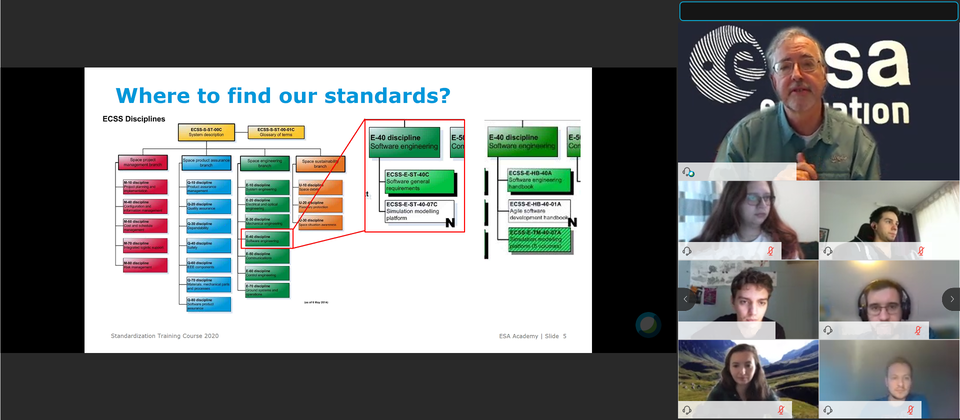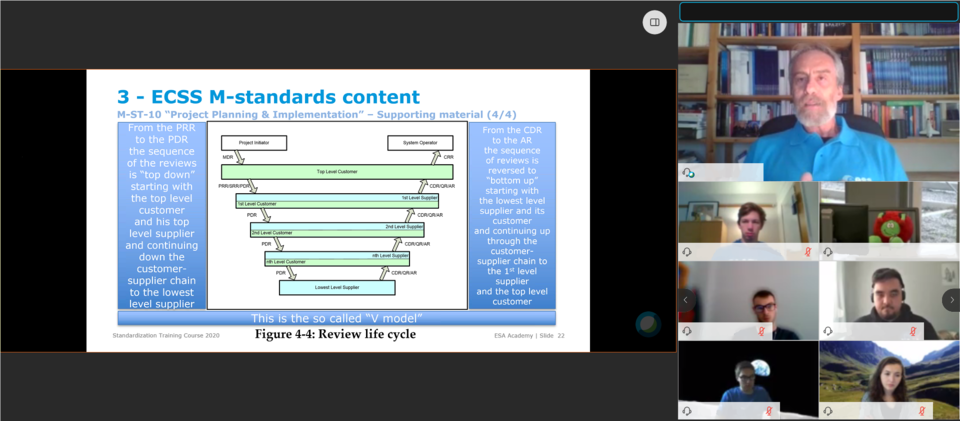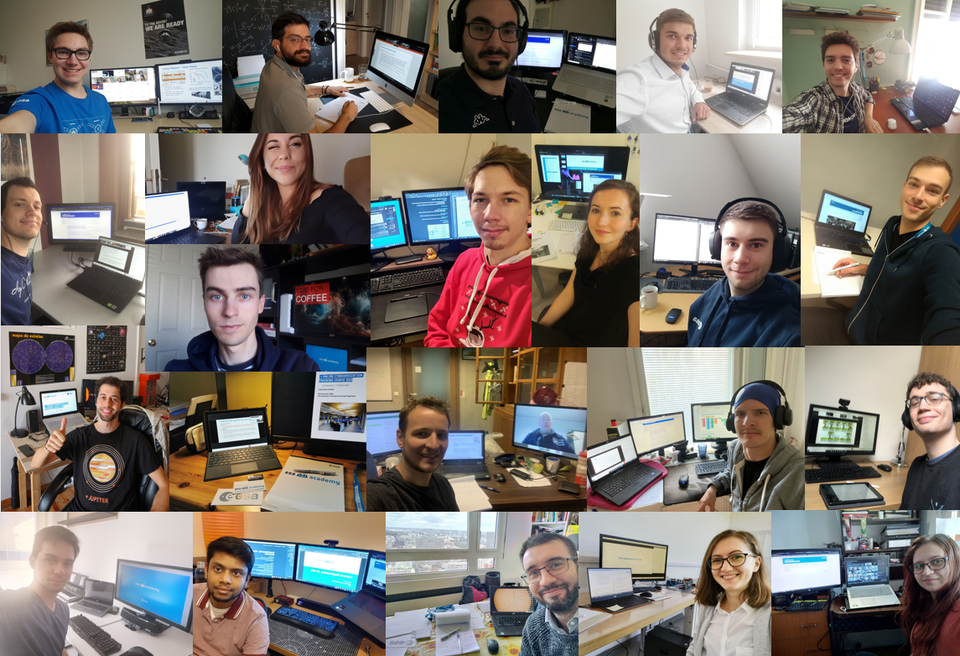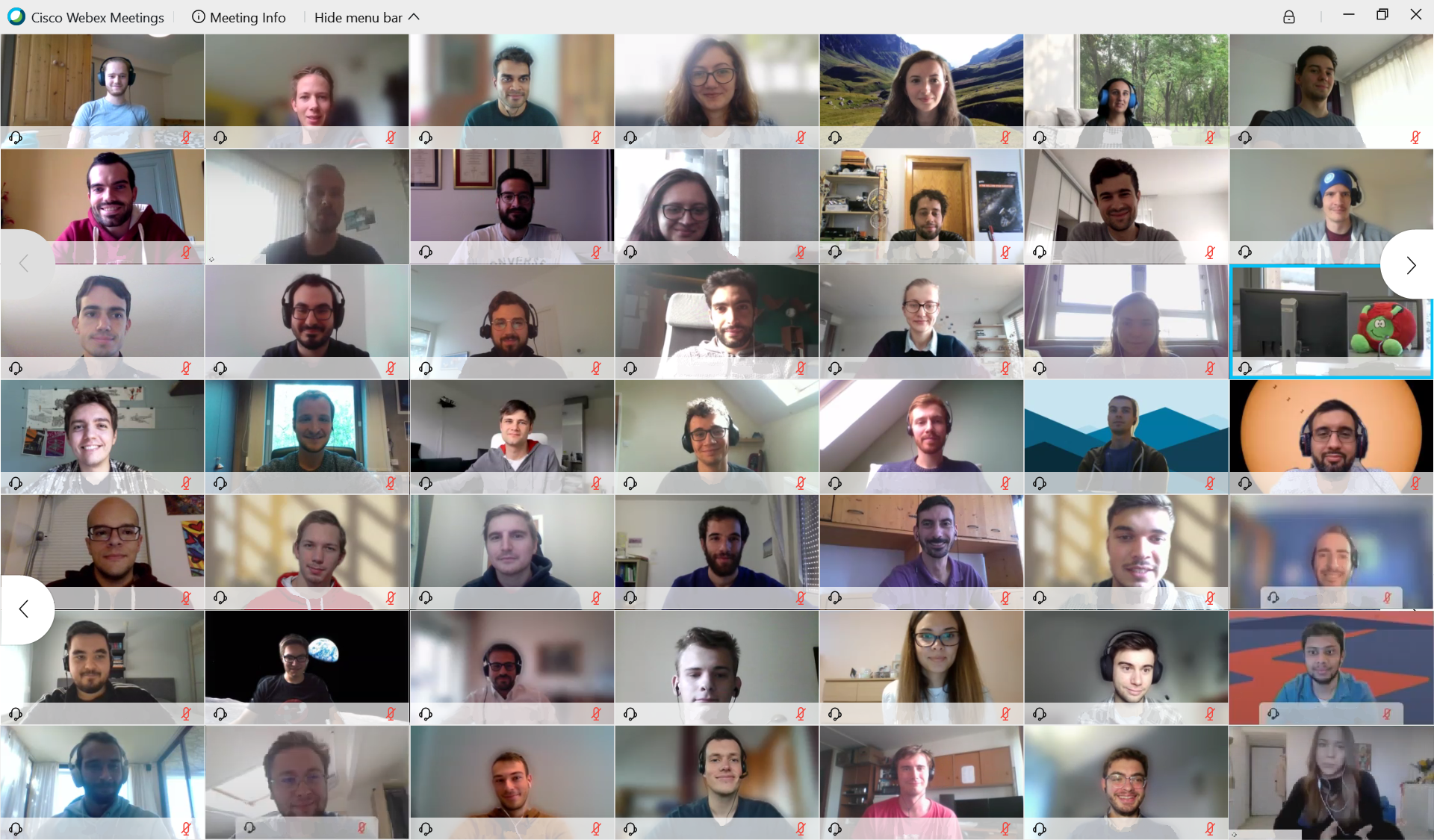Raising standards: 50 University students virtually attend Online Standardization Training Course 2020
ESA Academy’s Online Standardization Training Course 2020 has been successfully completed, running from 28 September to 7 October 2020. A collaboration between ESA’s Education Office and ESA's Requirements and Standardization Section (TEC-QES), this was the fourth fully-online ESA Academy training session, allowing University students to participate safely despite the ongoing COVID-19 pandemic.
In virtual attendance were 50 students with engineering and science backgrounds, from 14 different ESA Member States, Canada and Latvia. Course trainers were ESA and external experts from a variety of different disciplines within the space industry.
The core intent of the training course was to introduce students to the European Cooperation for Space Standardization (ECSS), and to explore how the standards within the ECSS system are applied to space-related disciplines. The ECSS provides a coherent, single set of standards that are made applicable by ESA in the space related projects and business agreements and are crucial to the sector as they form an essential tool to facilitate work between Space Agencies and industry.

Despite the importance of standardization, the ECSS standards are not usually taught at universities, which leads to a gap between students’ education and the knowledge they need for a career in the sector. The Online Standardization Training Course 2020 bridges this gap. Said a German student from Dresden University of Technology, "I was impressed by the practicality and comprehensiveness of the lectures. It was a fascinating experience, covering a lot of aspects related to spacecraft and space mission design, focused on the reasoning of the standards and their application in practice. Highly recommended to anyone interested in space mission design."

The students began by receiving an overview of the ECSS system, focusing on what are the challenges related to space technology when compared to the terrestrial applications, on the key concepts from top disciplines.. This was followed by exploration of the applicable standards, why they are important, and how to apply them to a number of disciplines throughout the space mission cycle:
- Project Management
- Product Assurance and Quality Assessment
- Mechanisms
- System Engineering
- Communications Protocols
- Control Engineering
- Thermal Engineering
- Electrical Engineering
- Software Engineering and Software Product Assurance
- Ground Systems and Operations
- Structures

The course trainers made good use of examples, exercises, and personal experience to demonstrate the importance of the standards, explaining when and how they use them. "Along with the description and the use of the ECSS standards, we had a broad overview of all the disciplines met during the different phases of a space project,” said a Belgian student from University of Liège. “This endows me with a better understanding of how you can contribute to top-notch space missions and how they are made possible thanks to high-quality recommendations and guidelines provided by the standards."
On the final day, the students were evaluated through an online evaluation questionnaire in order to obtain a grade for their course transcript. With this document and their certificates of participation, the students will be able to claim ECTS credit(s) from their respective universities.
“The ESA Standards online training course was a great opportunity to get a fundamental insight into different space disciplines,” concluded a German student from Konstanz University of Applied Sciences. “Standards are important tools in the development of space technology, therefore it was exciting to learn about this highly interesting topic from ESA professionals who work with these standards daily. It is remarkable how much knowledge was imparted within a very short time, which was brought to the students online in an understandable and compact way.”
- To find more information about upcoming and future ESA Academy training opportunities, please check: http://www.esa.int/Education/ESA_Academy/Current_opportunities
- Contact: tlp@esa.int


